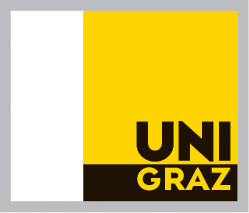Robert Caldwell
URI: https://gams.uni-graz.at/o:hsa.persons#P.1249
Korrespondenz
anzeigen
Suchen
Zitiervorschlag: Hurch, Bernhard (2007): Robert Caldwell. In Bernhard Hurch (Hrsg.): Hugo Schuchardt Archiv. Online unter https://gams.uni-graz.at/o:hsa.person.1249, abgerufen am 16. 04. 2024. Handle: hdl.handle.net/11471/518.10.2.1249.
Einleitung
Die Korrespondenz zwischen Robert Caldwell und Hugo Schuchardt wurde von Hugo Cardoso bearbeitet, kommentiert und eingeleitet.
Die Webedition wurde unter Mitarbeit von Patricia Candea erstellt.
Bedeutung
Robert Caldwell was born to Scottish Presbyterian parents in Northern Ireland, on May 7th, 1814, and raised in both Ireland and Glasgow. He arrived in Madras (modern-day Chennai) in 1838 and spent most of his career working in South India as a missionary for the Anglican Society for the Propagation of the Gospel in Foreign Parts. He married Eliza Mault in 1844 and the couple had seven children. A great deal of his work was developed in the southern district of Tinnevelly (modern-day Tirunelveli), a Tamil-speaking area; in 1877, he was appointed Bishop of Tinnevelly by the Anglican authorities. Although his letters to Hugo Schuchardt were written from London, in 1884, he eventually returned to India, where he died, in Kodaikanal, on August 28th, 1891 (Buckwell 1906: 67).
Caldwell’s acquaintance with Tamil was originally motivated by his wish to preach in this language – he was involved in the Tamil translations of the Bible and a Prayer Book –, but he was to make major scholarly contributions in this area. His interests and writings included history and archaeology (cf. Caldwell 1881) and also religion (cf. e.g. Caldwell 1885) but, especially, linguistics. His 1856 book A comparative grammar of the Dravidian or South Indian family of languages is credited with establishing the Dravidian family by showing the relationship between the languages of South India, on the one hand, and disproving the hypothesis of a Sanskrit origin for these languages.
Gegenbriefe
The whereabouts of the letters from Schuchardt to Caldwell is unknown.
Briefedition und Kommentare
The correspondence from Robert Caldwell preserved in the Schurchardt Archiv consists of 1 letter and 4 postcards, sent from London between March and June 1884. Schuchardt’s letters to Caldwell have not been located, but these documents indicate an intense and relatively quick series of consultations concerning the state of Indo-Portuguese on the Coromandel Coast (in Southeastern India).
The letter, the earliest of all missives, is also the most substantial in content; the four postcards served either to inform Schuchardt of Caldwell’s endeavours to obtain information elsewhere, to confirm reception of materials sent by Schuchardt, or to provide brief answers to his questions. The last one, dated June 5th, appears to have been sent with a book that Caldwell had managed to procure from Henry Bower in Madras, although it is not clear which one exactly.
Linguistic contribution
Caldwell’s letters to Schuchardt are not very rich in linguistic data, but they do provide some information on the extent of the demise of the Indo-Portuguese language on the Coromandel. In his first letter, Caldwell explains that, even though the Indo-Portuguese community was numerous throughout the coast, most people had already abandoned the language. This is echoed in Henry Bower’s testimony, reported in the last postcard, according to which the language had almost disappeared from the city of Madras (modern-day Chennai) by 1884.
Bibliographie
Buckland, C.E. 1906. Dictionary of Indian Biography. London: Swan Sonnenschein & Co.
Caldwell, Robert. 1881. A political and general history of the District of Tinnevelly, in the Presidency of Madras, from the earliest period to its cession to the English Government in A.D. 1801. Madras: E. Keys.
Caldwell, Robert. 1885. The relation of Christianity to Hinduism. London: R. Clay, Sons & Taylor.
Herkunft der Digitalisate
Die von Robert Caldwell an Hugo Schuchardt verschickten Briefe befinden sich in:
